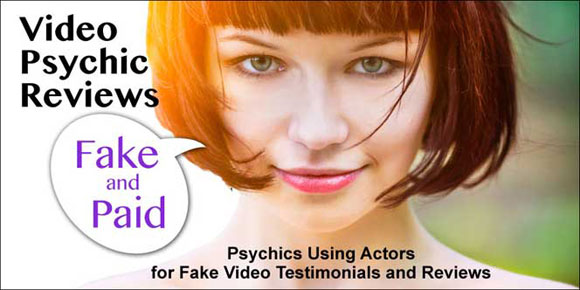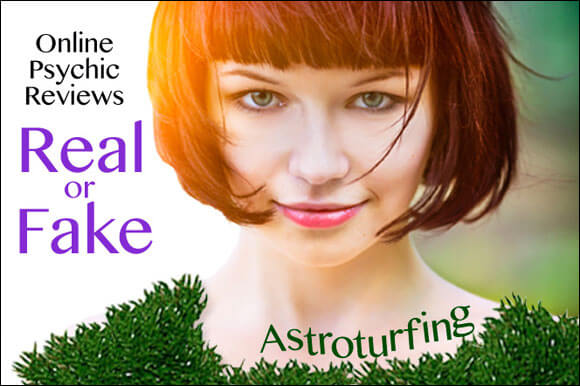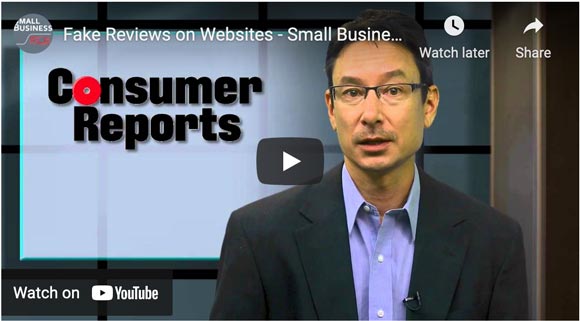
Vine Psychic - Earth Seer
Fake Psychic Reviews and Testimonials on WOMO and TRUE LOCAL
How a Psychic Network Committed Directory Fraud to Attract Australian Customers
True Local and Word of Mouth Online owners have much to answer for concerning the ethical integrity of their business reviews. The checks and balances they have in place to identify fraudulent and malicious psychic reviews are not working.
The higher percentage ratio of psychic reviews, compared to other industries, should have sent out a ‘red flag’ to the managers of these directories, which rate businesses by awarding gold stars.
A gold star service award on your business review site is meant to indicate to Australian customers that you are trustworthy and have a good reputation that has been recommended by credible buyers.
Unfortunately, that couldn't be further from the truth.
CASE STUDY:
“Company Paid for 5 Star Reviews”Article from Yahoo7 Finance
A company that wanted to test the legitimacy of the review sites, set up a fake business and bought 5 star reviews from the major review sites in Australia. For less than $154 they bought enough 5 star reviews to actually win a Customer Service Award that was based on reviews, even though all their reviews were faked.
Please Note: The company that did this test, is a start-up Referral company that is in competition with the review sites.
The fact that one Australian psychic in the clairvoyant classification, had over 105 reviews in two years on WOMO should have alerted the directory company that something was amiss. The fact that fake reviews are key-worded for SEO purposes, to be found Australia wide, should be more than enough to warn the testimonial sites that a sophisticated scam is being conducted right under their noses in the psychic and life coaching industry.
All the paid reviewers say things like; the psychic is caring, understanding, insightful, etc. They cram their reviews with excessive amounts of SEO keywords like great, best, real, gifted, natural-born etc., trying to appeal to as many people as possible in much the same as a traditional advertisement.

Vine's article about fake video Psychic Reviews by paid actors. Pretending they were skeptical at first is a common theme.
It’s surprising how many times fake reviewers state they were skeptical before having a psychic reading, but then of course go on to say that the so called five star psychic reassured them about all of their concerns. Remarkably, they all end up giving glowing recommendations to use the psychic service.
What we didn't find in any suspect customer testimonials we investigated was whether the psychic got anything specifically correct in the reading. Suspect reviews are often quite general and don't do a breakdown of the reading that most reviewers write about when something is accurately revealed. They also don't write about anything that was predicted for the client in the future. It appears they have a dislike of the real spiritual arts.
They often tried to persuade the customer that psychics don't do predictions. Whereas genuine spiritual psychics do see into the future and they do see destined outcomes. This is why Vine, as a spiritual seer, does spiritual prophecy for the future and it comes true. Her psychic predictions are followed by people all over the world and revered by many.
Fake Psychic Reviews are Carefully Managed
Are you starting to get a picture of how carefully managed the keywords on each review are written to maximise their search results. The biggest indicator is how many of the reviewers add the locality or location of each state or territory to their testimonials. They do this to be found in all the capital cities, for example: Melbourne, Sydney, Brisbane and Perth etc.Whoever is in control of these carefully staged reviews, must have studied their competitors’ testimonials in order to extract the identical keywords on their websites. They do this to be found before legitimate psychic businesses in search engine results. It doesn’t require a marketing expert to identify that the paid/fake reviews are carefully worded, without the inevitable spelling errors or grammatical mistakes that often typically occur when a legitimate customer quickly types up a review.
Some of the reviews have more than half a dozen keywords in one sentence. It is farcical to think that any customer would go to the trouble of thinking up all of those superlative adjectives. It is also ludicrous to believe that the owners of these review sites would allow over the top, obviously fake reviews.

Vines article about Astroturfing. Astroturfing is the practice of masking the real nature of a message to make it appear as though it originates from and is supported by grassroots participant(s).
The fact that the same customers are going back to review the psychic multiple times and forcing up their reputation to high percentage points of trust, screams out “this is a scam”.
Also the fact that we see the same psychics and life coaches supposedly from independent businesses, liaising with each other to defend why they don't believe in psychic predictions, seems to have escaped the managers of WOMO.
What is Happening to WOMO Psychic Reviews?
WOMO appears to be experiencing something similar to the old Ebay rating scam. In that scam, networks attempted to milk the ratings (review) system in their favour. EBay and Yelp had to ban the metaphysical and spell reviews because they were inappropriately getting high ratings and stopping negative reviews from being found.A Quote from eBay's Comments pages about ratings Scams in the Metaphysical Section:
Who sets the standards of what is acceptable and unacceptable business practice of spell casters on eBay? The spell casters themselves, along with eBays sanctioning! What are the minimum acceptable practices? Paying for FAILURE is Ok but posting TRUTH in feedback about the actual results of a spell is not and will get you BLOCKED by all other spell casters? Why is this FARCE ,somehow "acceptable"? Are the spell casters ratings accurate or carefully scripted sales copy and how do you know?
At the time, eBay buyers were being asked to remove lower star ratings that deceived the buyer using their services (see history).
What is Happening in WOMO & True Local NOW
Much the same thing is now occurring on major Australian Directory Review sites such as WOMO and True Local. Presently there is inappropriate buying and selling for the business classification of ‘life coach and clairvoyant counselor’ and it is reaching epidemic proportions. Dissatisfied customers are being asked to alter their testimonials. A lot of psychic businesses are now paying to join the "Happy Customer Program" to incentivise positive reviews, in this case 5 star reviews.How many online reviews do you do in a year?
The NSW Psychic (referred to above) in the clairvoyant classification, was receiving 4 reviews every week. That is unheard of in the psychic industry for genuine psychics. It isn't difficult to identify that some networks in the life coach industry have been propping each other up in the last few years and misleading Australian customers.It appears the life coach industry has come under disrepute yet again. The same meet-up Groups who aspire to the false Law of Attraction teachings about attracting what you send out, are also connected to the latest psychic life coaching review scam being found in online review sites. There seems to be a direct relationship between the people who attend these Meet Up groups, and the people writing online reviews.
You can find many different psychic or life coach businesses using similar practices. They spew-out reviews so thick and fast you’d swear they were on speed. Australian consumer laws do not allow fake reviews, but it isn't stopping scammers working around the laws with fraudulent practices.
CASE STUDY:
True Local Change.org PetitionStop TrueLocal publishing untrue reviews about Australian Businesses
This True Local change.org petition points out the dangers that Australian small businesses face when dealing with untrue bad reviews: "bad reviews can cost a business thousands of dollars or even worse it could shut an Australian business down leaving staff and business owners’ unemployed even if the reviews are not true. This kind of power for persecution or Companies and Businesses should be reserved for the Australian legal system, not for an irresponsible private company."
How the WOMO Reviews work...
When you submit a review on the WOMO site, they initially treat you as relatively untrustworthy. Depending on the nature of your review, it may not be published, or may be taken down if the business complains about it.However, fake reviewers can easily increase their Trust rating by submitting a few legitimate reviews. Their fake reviews are then more likely to be published and not taken down if the business complains. The same thing occurs on the True Local directory site where bad and fake reviews can cost a legitimate business thousands of dollars.
The more reviews you write, real or fake, the higher trust rating WOMO and True Local will give you. If the business complains to WOMO or True Local about fake reviews, WOMO will tell them to write back to the fake reviewers and enter into a discussion with them.
When you do that, it increases the activity on the directory sites and pushes the alleged fake reviews even higher in search engine ratings making it even worse for businesses with fake reviews against their name.
CASE STUDY:
Excerpt from Whirlpool Forum discussion about WOMO reviews: WOMO reviews would not allow a negative reviews"I used the WOMO review site to write about my bad experience and immediately got a prompt that Aliz's Psychic Solutions is actually part of the WOMO 'Happy Customers Program' and asked to withdraw my complaint and gave me several options. It appears WOMO reviews are only getting five star reviews because of the way they are stopping consumers having any real feedback."
Is there anything businesses can do about fake reviews?
If your business has a fake review, WOMO may agree to remove it if they can ascertain that the reviewer is fake, or if the reviewer cannot adequately prove they have used your service. However, there are ways that fake reviewers can easily get around this.If the fake reviewer is a business competitor who is setting out to denigrate your business (yes this happens), they may first actually use your service with the express purpose of submitting a bad review. They'll do this so that when they submit their fake bad review, they'll be able to prove they actually used your service. After that, there's little chance the fake review will be taken down.
So, what can a business do when it gets unwarranted fake or bad reviews against it? WOMO's suggestion is to pay them money. Yes, you can pay to join WOMO's Happy Customer Program, and then pay even more money to solicit reviews.
Happy Customer Program
By paying to join WOMO's Happy Customer Program, businesses can be a part of the WOMO rewards program, which is WOMO's way of saying, you can pay customers to submit a review.
But surely paid reviews are illegal? Well, not if you specify that the review can be either good or bad, and still receive the reward or payment.
Information on WOMO's own paid review promotion, points out that paid reviews can be either good or bad. However, they don't point this out when giving suggestions on how you might go about soliciting paid reviews yourself.
This is how the WOMO site suggests businesses should ask for forced/paid reviews:
"This might be something your business offers – e.g. review us on WOMO and you'll receive a $20 voucher to use at your next visit, or go into the draw to win a $100 voucher, or get 10% off your next order."
When talking about their own rewards program, WOMO makes sure to mention that reviews can be either good or bad. However, they don't mention that when you solicit paid reviews yourself, you MUST specify that the reviews can be either good or bad.
Compare this to the following ACCC example of how to appropriately ask for forced/paid reviews. The ACCC's example stresses that forced/ paid reviews can be either positive or negative:
This is the ACCC's paid review incentive example:
"Now that you’ve had time to familiarise yourself with your device we’d like to hear your feedback. Your review will help other customers like yourself shop online. As a thank you for taking the time to post a review you will get 10% off your next purchase. We encourage you to write a review that reflects your genuine experiences of the product, be they positive or negative"
Negative Reviews Make Money for WOMO
You can see from all of this that it's easy to cross the line and indirectly suggest that paid reviews should be positive. Because most people accepting payment for a review will feel obliged to give a good one, paid reviews become the only way for a way for businesses to counteract bad reviews.This is how WOMO makes money out of bad reviews - by getting businesses pay to join the Happy Customer Program and pay for new reviews after they are hit with bad or fake ones.
As far as we are concerned, any paid review is an unethical business practice.
Lets face it; fraudsters are committing a criminal act when they attempt to deceive the buyer with fake reviews. The buyer is you.
This news story on fake reviews suggests that Review sites know exactly what is going on with fake bad reviews. It states, "The sad part is, consumer rating companies seem to be partnering in this crime, either fully aware of the scam or even promoting it in some ways."

News story about fake reviews on directory websites.
Business Reputation built on Fake Reviews
Instead of these unethical businesses attracting clients by building up a real business reputation, they are manipulating the search engine enquiries so they can be found before legitimate psychic companies, with the help of the directory company owners.It's Not a Coincidence that Vine Psychic Line has Received Malicious Fake Reviews
It is also not a coincidence that after Vine Psychic Line wrote about fraudulent online psychic reviews, our business was targeted with mostly anonymous derogatory and fake testimonials within days of each other on Gumtree, True Local and WOMO.These anonymous reviewers had even attempted to persuade customers that because Vine had a young sounding voice, she must not even exist at all.
To say something like that in a review is just plain silly, especially considering that Vine has been around for 34 years face-to-face, online and over the phone. It's because Vine has been around for so long, she knows what goes on in the psychic industry.
It appeared the networking groups didn't like being outed and they were determined to denigrate Vine's public business standing. All of this highlights how easily a group of individuals can come together and abuse the review system.
Are you a Shareholder who doesn't want to support Scams?
Who owns WOMOWord of Mouth Online (WOMO) is owned by Australian company OneFlare Pty Ltd. Oneflare was originally a ventured backed start-up with initial help from the Australian Government, then private equity funding from Grand Prix Capital and Microequities Management. Recently, Fairfax Media's 'Domain Group' paid $15 million for a 35% stake in OneFlare. Therefore, Fairfax now has a stake in making sure that WOMO reviews are managed ethically as we go forward.
Who Owns True Local
The True Local review site is set up to run in much the same way as the WOMO review site and is therefore very vulnerable to the same sort of abuse of the review system.
True Local is owned by Sensis, which used to be the business arm of Telstra that produced the White Pages and Yellow Pages for Australian Telephone customers. However, in 2014 Telstra sold 70% of Sensis to US private equity firm, Platinum Equity.
According to Platinum Equity's web site, their initiatives for Sensis includes to, "Renew focus on the core directories business including SEM (Search Engine Marketing) and TrueLocal."
True Local uses a prompt to get reviews from professional business services and tradies, etc. They even do this for businesses that didn't place a listing on True Local themselves and don't want to be there. The pop-up message is: "Helloooooo? It looks like people haven't reviewed this business yet. Why not get the ball rolling and be the first to do a review"
The more interaction that they can produce on their review sites, the higher they rate in web searches, the more clicks they get, the more money they make. Businesses who may not have wanted to be on the review sites at all, then become enslaved to the review sites.
Aussie Businesses Against Review Sites
Some Aussie businesses are speaking out about malicious reviews being placed under their business listings to get them to sign up for paid services to defend their reputation. This is unacceptable and must be investigated by the Australian Competition and Consumer Commission. Businesses should have the right to have their listing removed if they didn't agree to use the directory. Search Engines such as Google, Yahoo and Bing should not be playing any part in business-to-business partnerships that allow review sites to be found before the legitimate business itself.It is up to the Australian public to be more shopper-savvy and realise that scammers will try to appear more relevant than their competitors.
How Bad Are Malicious Reviews Online?
Review sites are telling businesses that recognise fraudulent reviews to respond to the reviewers directly. Why? To get you to use their site of course.Business owners are being forced to go into sites they don't want to be on, to defend malicious reviews that should never have been allowed to be published in the first place. We found the recent reviews on True Local about Vine fall into the rant category. True Local defended their practice on Twitter, stating they were monitored. See Tweet placed by our business warning True Local of legal action. Some business owners are stating they are being bribed to defend their business reputation. This means global businesses are at the mercy of malicious review sites that could come from anywhere in the world.
Thank You
We would like to thank Vine's loyal clients who have not been influenced by these fraud psychic review websites. We have passed on your concerns to several ministers of Parliament and the ABC 7.30 Report. There are more and more businesses speaking out about these unethical practices.We know of no other industry like the psychic sector that's having the same level of consumer trust abuse. It is why Vine was spiritually guided to work on the first Australian Psychic Line because she was warned about all of the deceivers destroying the original spiritual arts. The more we identify the frauds in the psychic industry, the more we bring integrity back into the spiritual arts.
Life Coaches are not psychic. They are trained to use NLP covert hypnosis on the public to change behaviors. Whoever approved Life Coaching in the Australian Psychic Association can only be held responsible for the majority of unethical issues occurring daily on the Aussie public. They approved mixed modality practitioners, without having adequate ethical standards in place to protect the Australian public.
If the life coaching networks want to avoid more bad publicity, they need to clean up the cowboys in their industry and stop advertising under the psychic category.
However, the damage may have already been done.
Love and Light
Vine
September 21st 2016
• Related Articles
